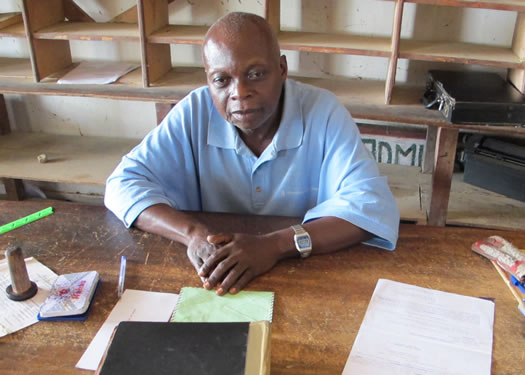
|
|
|
| Home » |
|
Below is an interview with SENGI KALONDA, a man from Punia where HEAL Africa’s Gender and Justice team held a week long symposium regarding changing traditional tribal laws to be more in keeping with human and women’s right. The changes made will likely be small and incremental, but the mere act of these key leaders meeting, and their willingness to talk about making changes, is an important step forward. I am 65 years oldStudies Career I began my career in the service of the state in 1963 in Ferekeni, in the chiefdom of Babemo where my village is located. I was the tribunal clerk, a census-taker for the office of the chiefdom and then a tax collector. After several years, I was promoted to the territory office, and I received my regimental number in 1988. Family (marriage and children) I married my first wife when she was almost 14 years old, but we were separated for several years, and after a time she returned to live in her village. I was sad to hear that she died this year. With all of my wives (the ones that I married) and other women (those with whom I had children outside of wedlock), I had 17 children. Some are here in Punia, others in Ferekeni, and others have gone to live in Ulindi, and still others in Kisangani. One lives in Goma. The situation of women At the time that I did my studies and started to work, women couldn’t do those sorts of activities. They were dancers in the MPR (Popular movement for the Revolution, the State party of President Mobutu). Even now there are not many women [who study] because they get married early. We believe that as we begin to receive visitors like you [referring to HEAL Africa employees], who are women who have studied, that there will be some changes. Our problem here is isolation, people don’t come here because there are no roads. For example, my children who are in Goma and elsewhere have difficulty coming to visit me because the airfare is costly. Most of the people who come to our area are traders who come from Goma or Bukavu to buy minerals like cassiterite, gold, and diamonds and to sell clothing, healing ointments, and food products like salt, sugar, refined oil, eggs, cows, etc. Seeing you, the women here might get a taste for studying, and for traveling, and there will be change. In the same way, parents who see a woman who is working and going on trips will want to have female children who are able to be like her. If I were your father [referring to the female interviewer, I would be proud of you. Here, the main thing that women do is get married. They get married too early, and they change husbands frequently, as do the men. When you find that your wife has left, your only option is to look for another, and more often than not you find what you are looking for. Community Activities There are no plantations here, the few people who do farm do so to feed their families, and can only sell their crops occasionally. I fall in this group. About the Symposium I hope for many things from this symposium. On the one hand, the young people of the city will know that our customs remain strong, and that all of the deviations [from custom] that currently exist must be readjusted. I hope that the symposium will achieve this end. I hope that the Chiefs will understand that the work that they came here to do will impact not just our generation, but generations to come. Share HEAL Africa with your friends. |
|
Our Mission Providing holistic care including physical, spiritual and social healing for the people of the Democratic Republic of Congo; training for health professionals; support to strengthen communities; encouragement for women in community leadership roles; and support for education and vocational training. Copyright © 2011 HEAL Africa is a registered 501(c)(3) charity | EIN#20-4104936 All Rights Reserved. |

